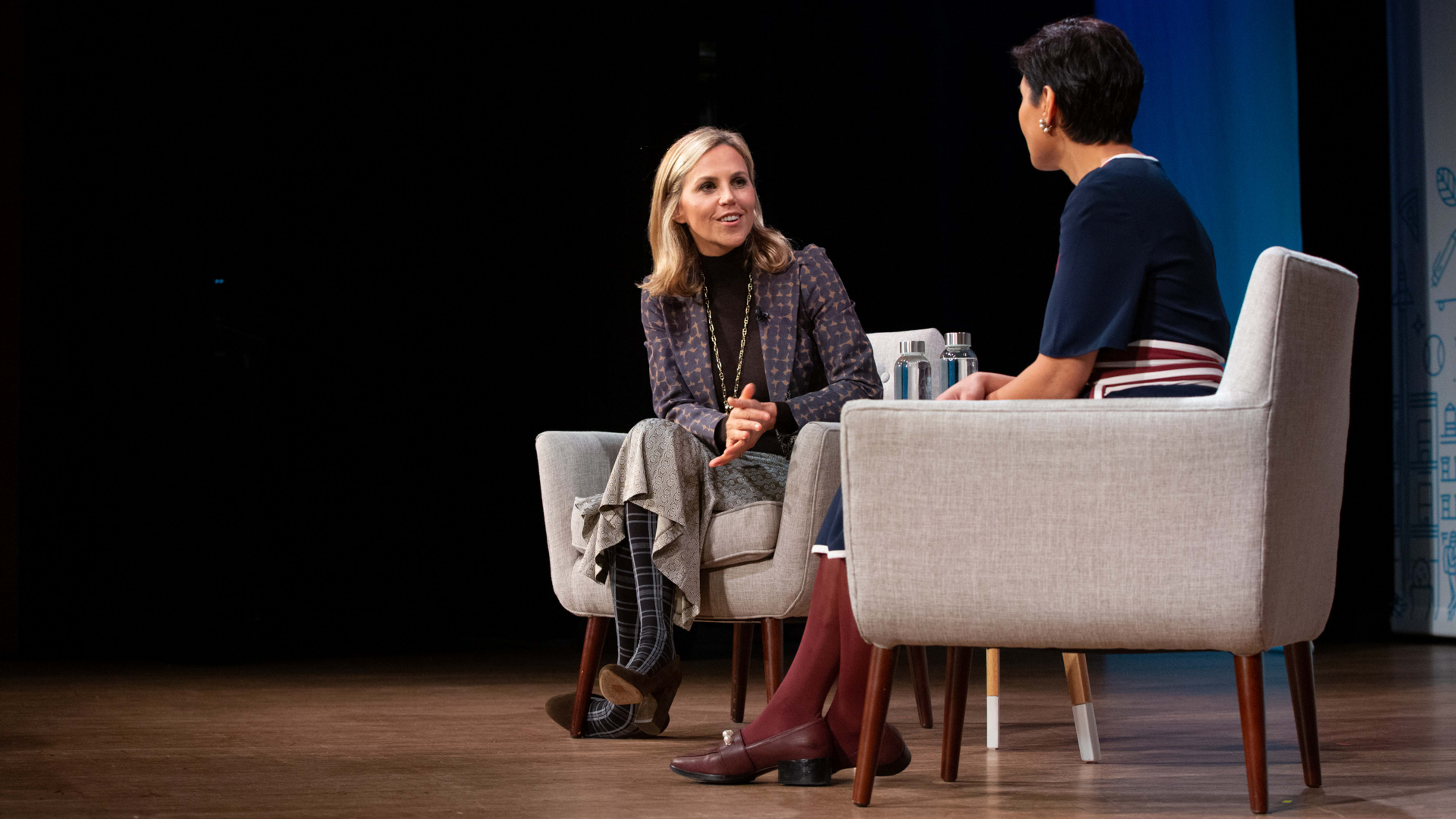Tory Burch is a woman you would probably describe as ambitious. But for years, even well after starting her eponymous brand, the fashion entrepreneur steered clear of the word.
“The first article that was written on our company was written by the New York Times,” she said during a session at the Fast Company Innovation Festival last week. “A dear friend of mine called me up and said, ‘Nice article, but you shied away from the word ambition.'” In fact, when she was asked if she was ambitious, Burch remembers finding it a rude question. “It was a pejorative and negative,” she says.
For Burch, who grew up with three brothers, gender didn’t necessarily feel like an issue when she was younger. “My parents raised me thinking I could do just what they could do,” she said. The negative framing of women’s ambition was something she started feeling as she moved through the workplace—and as she launched her brand in 2004. “When I started the company, a lot of people weren’t doing startups,” she said. “So people sort of patted me on the back and said, ‘So cute, you’re [starting] a company. Oh, and you want to have a foundation be part of it?’ They just thought that was charity work.”
Over time, Burch realized she wanted to change the narrative around women’s ambition—and help women name it. “A year and a half ago, I sent an email to a lot of people that I admired and said I was doing a public service announcement,” she said. “And it was to really deal with the word ‘ambition’ and the negativity around it when associated with women. We had to get rid of that.”
That effort became the #EmbraceAmbition campaign, which spawned the first Embrace Ambition Summit earlier this year. “We dealt with ambition, unconscious bias, and stereotypes, so it was a big idea and big words to deal with,” she said. “But I think we made some progress, and I think for women to own their ambition and be proud of it is a great first step.”
Whether or not she used the word “ambition,” Burch has sought to support female entrepreneurs—and their ambitions—since 2009, when she started the Tory Burch Foundation. In the 14 years since she started her business, Burch says, the support networks for women entrepreneurs have become far more robust, especially as the sheer number of female founders has increased (and those entrepreneurs are, in turn, able to invest in other women).
Burch hopes to keep building on those networks through her foundation. “One of the great things about our foundation is the peer-to-peer mentoring,” she said. “Eventually, we want to take it further; we want to have chatrooms and do interviews on those chatrooms. But it really has changed a great deal.”
And why is that? “People are more accepting of women in business,” Burch said. “We’re not there yet—I want to be careful because we have a lot of work we have to do. But it’s on the right track.”
Recognize your company's culture of innovation by applying to this year's Best Workplaces for Innovators Awards before the extended deadline, April 12.
